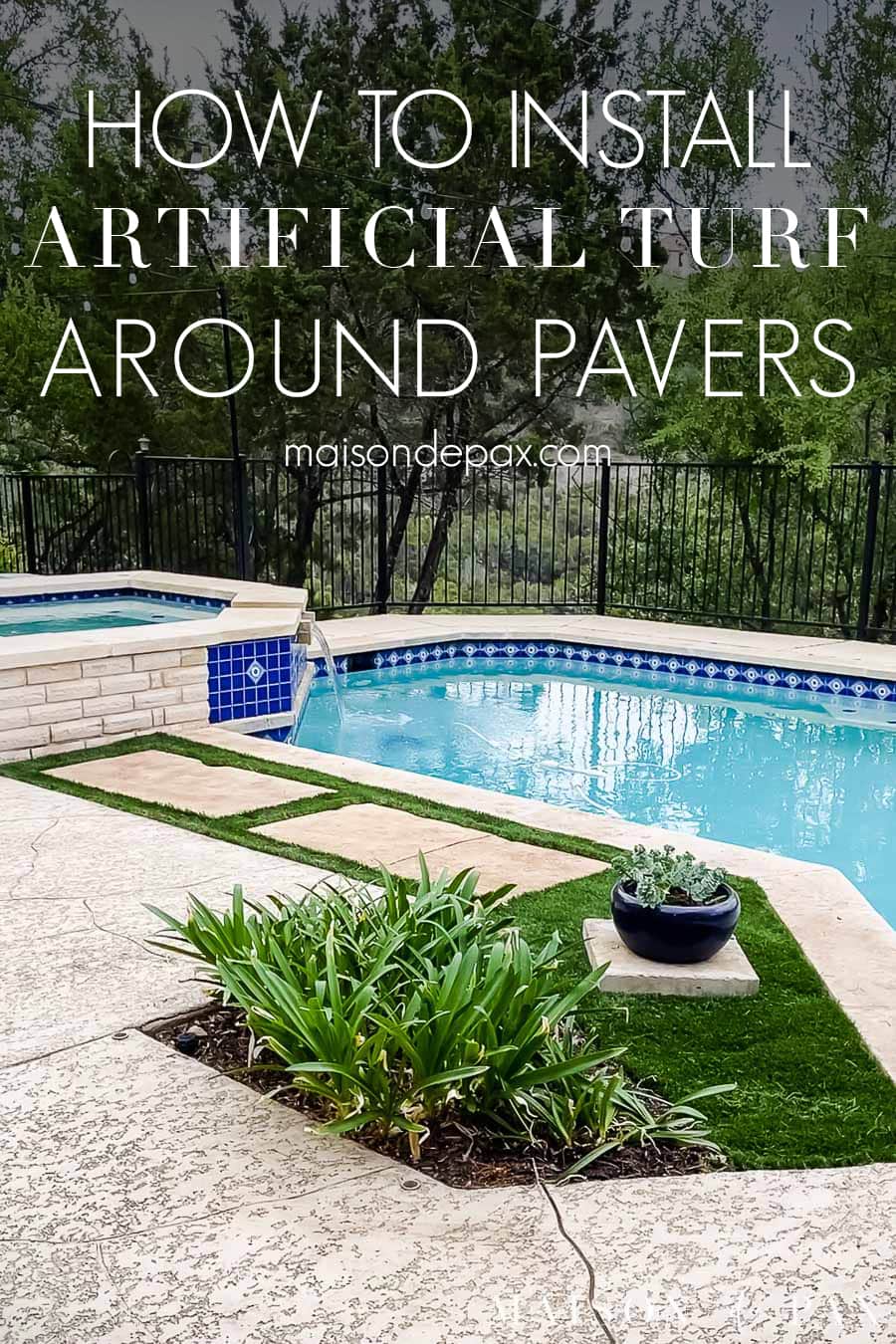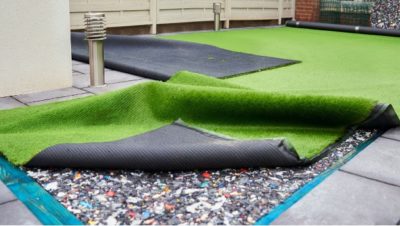Top Reasons to Take Into Consideration Artificial Turf for a Low-Maintenance and lavish Lawn
As homeowners significantly seek lasting options for outdoor areas, synthetic yard provides an enticing option to traditional yards. Its ability to preserve a lively appearance year-round without the worries of watering, mowing, or chemical therapies makes it a useful selection for those aiming to minimize maintenance efforts. In addition, the environmental advantages, including considerable water preservation and decreased reliance on chemicals, align with contemporary eco-friendly values. Nonetheless, the benefits extend beyond plain visual appeals and sustainability; checking out the complex implications of synthetic yard discloses an extensive technique to backyard monitoring that merits deeper consideration.
Year-Round Greenery
Among the most substantial benefits of artificial yard is its capability to provide year-round plant, despite environment conditions. Home owners typically face obstacles in maintaining a vivid lawn because of seasonal adjustments, dry spells, or heavy rains. Synthetic yard gets rid of these problems, making sure a consistently rich look throughout the year.
This synthetic choice is engineered to stand up to diverse weather condition circumstances, from burning summer season heat to freezing wintertime temperature levels. Unlike natural lawn, which might brown or end up being uneven throughout extreme conditions, synthetic grass preserves its lively shade and texture, improving the visual allure of any landscape.
Furthermore, fabricated yard is resistant to insects and illness that commonly affect natural yards. This durability adds to its long-lasting beauty, as there is no need for chemical treatments or fertilizers that can be dangerous to the environment. Moreover, home owners can enjoy the visual benefits of a well-maintained yard without the cyclical difficulties positioned by natural turf care (turf installation).
Minimized Upkeep Efforts
Man-made lawn substantially minimizes maintenance efforts, allowing home owners to take pleasure in a pristine lawn without the time-consuming tasks related to natural yard treatment. One of the most remarkable benefits of synthetic turf is the removal of routine mowing. With no demand for a lawnmower, home owners save both time and the cost of upkeep related to this equipment.

Cleaning up synthetic turf is simple; a basic rinse with a pipe or the occasional brushing to eliminate debris is typically sufficient - artificial grass installation. This simplicity of care allows homeowners to spend more time appreciating their exterior areas as opposed to laboring over them. In summary, the reduced upkeep initiatives related to synthetic turf make it an attractive option for those looking for an attractive, easy lawn
Water Conservation Advantages
The considerable reduction in maintenance efforts related to man-made turf includes water conservation, making it an eco-friendly choice for homeowners. Typical yards require significant amounts of water to remain vibrant and rich, typically leading to too much water usage, specifically in arid areas. In contrast, artificial lawn eliminates the demand for regular watering, substantially minimizing the overall water usage in your yard.
By choosing for artificial grass, home owners can save hundreds of gallons of water every year. This change not just benefits specific households but additionally adds to wider ecological initiatives focused on lowering water waste. In areas experiencing link water shortage, the fostering of artificial lawn can play a substantial role in alleviating the results of drought and making sure that beneficial water resources are used a lot more successfully.
Additionally, the setup of fabricated grass can help lower local water need, profiting the community overall. With growing understanding of ecological concerns, picking artificial turf works as a positive action in the direction of lasting landscape design, aiding to maintain all-natural water resources while maintaining an aesthetically pleasing outside space (artificial grass installation). In recap, fabricated turf offers a compelling option for water preservation, lining up ecological obligation with contemporary landscape design requirements

Pest and Allergic Reaction Decrease
A considerable advantage of setting up artificial grass is its capacity to decrease parasites and allergens in exterior spaces. Standard grass yards often work as reproducing grounds for pests such as mosquitoes, ticks, and ants, which can produce pain and health dangers for family members and family pets. In comparison, artificial turf removes the dig this organic material that draws in these parasites, thus dramatically lowering their populations in your lawn.
In addition, natural lawn can nurture mold and mildew, pollen, and other allergens, which can activate allergic reactions and respiratory issues for sensitive people. Artificial lawn provides a cleaner atmosphere, minimizing the possibility for allergenic responses. Unlike all-natural grass, synthetic grass does not create pollen, making it an exceptional alternative for allergic reaction sufferers seeking to enjoy their outdoor areas without the danger of flare-ups.
Furthermore, the lack of dirt in fabricated lawn suggests there is much less dust and dirt, further lessening air-borne allergens. This low-maintenance alternative not only improves the visual charm of your lawn but also promotes a much healthier outdoor atmosphere, permitting households to enjoy their lawns without the continuous concern of bugs and allergens. Hence, fabricated yard is a tactical selection for those prioritizing comfort and health in their outside space.
Long-Term Cost Cost Savings
Purchasing artificial grass can bring about substantial lasting expense savings for home owners. While the initial financial investment may appear considerable, the financial benefits in time can be considerable. Man-made turf gets rid of the requirement for regular yard upkeep expenses, such as mowing, feeding, and watering. Conventional grass usually require considerable sources to keep a lavish appearance, specifically in locations prone to dry spell or severe weather condition conditions.
Furthermore, the long life of synthetic lawn better boosts its cost-effectiveness. Many top notch fabricated yard read this products can last 15 to 25 years with minimal upkeep, reducing the requirement for replacement or substantial repair work. On the other hand, all-natural yard might need frequent reseeding and normal care, which can rapidly accumulate in prices.
Utility savings are an additional crucial element. Property owners can expect to see lower water costs, as artificial grass does not call for irrigation. Furthermore, the decrease in lawn care solutions can liberate beneficial time and resources, allowing home owners to designate their budgets in other places.
Final Thought
In summary, artificial yard provides many benefits for house owners seeking a vivid and low-maintenance landscape. Its capacity to provide year-round plant, coupled with lowered maintenance efforts and significant water conservation, makes it an attractive option. Furthermore, the decrease of irritants and insects adds to a healthier outside setting. Inevitably, the long-term cost financial savings connected with synthetic grass solidify its status as a sustainable and useful solution for boosting exterior spaces.
Synthetic turf dramatically decreases maintenance efforts, allowing house owners to appreciate a pristine yard without the lengthy jobs associated with all-natural turf treatment.The substantial reduction in upkeep efforts connected with artificial yard extends to water conservation, making it an environmentally friendly alternative for home owners. In contrast, fabricated lawn gets rid of the requirement for routine watering, considerably minimizing the overall water consumption in your lawn.
In locations experiencing water scarcity, the adoption of artificial yard can play a significant duty in mitigating the impacts of dry spell and guaranteeing that valuable water resources are used more efficiently.
With growing recognition of ecological concerns, picking fabricated lawn offers as a positive step in the direction of sustainable landscape design, aiding to maintain all-natural water resources while keeping a visually pleasing outside area.